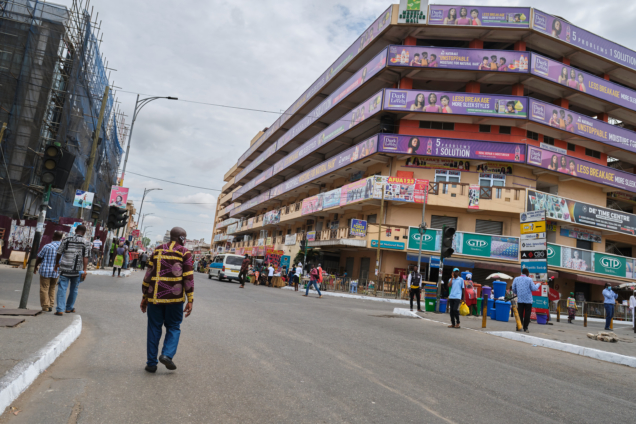A new Covid-19 Business Tracker survey conducted by the Ghana Statistical Service (GSS), in collaboration with UNDP and the World Bank has revealed that about 42,000 employees were laid off during the country’s partial lockdown in March.
About 770,000 people, making up 25.7% of Ghana’s workforce, had their wages reduced and the working hours of about 700,000 employees were decreased.
The World Bank Country Director for Ghana, Liberia, and Sierra Leone, Pierre Laporte stated that the survey shows how deeply Ghana’s private sector has suffered as a result of the pandemic.
Businesses, according to the survey, received shocks in supply and demand with many of them turning to digital platforms as solutions.
The findings revealed that there was a ¢115.2 million decrease in sales with businesses in the trade and manufacturing sectors taking a huge blow.
“The World Bank is working closely with government of Ghana to mitigate these negative impacts and assists businesses to survive the pandemic and build resilience in the face of the changed economic conditions”, Pierre Laporte noted.
To lessen the impacts of Covid-19, the survey results suggest the need for policies to support firms in the short and medium-term.
The Business Tracker survey indicated that although the government has taken steps to help affected businesses many of them have no idea such help exists.
The GSS suggested the need for increased awareness and clarity on the guidelines and requirements of current interventions.
“The findings of the business tracker provide specificity on the pathways of effects variation in the effects for different categories of business, their geographical area and teh extent of effects,” statistician Professor Kobina Annim said.
UNDP Economic advisor for Ghana and The Gambia, Fredrick Mugisha, stated that "if businesses, especially SMEs, are provided with the needed support to adopt to the best practices particularly in the use of digital solutions this could go a long way to increase their productivity and resilience to future challenges,”
The Business Tracker survey was conducted between May 26 and June 17 among 4311 business establishments and household firms.
It was aimed at providing critical information to help the Government of Ghana, development partners and other organizations to monitor the effects of the pandemic on businesses
Latest Stories
-
What happened at Tesano collation centre was a disgrace to democracy – Frank Davies
17 minutes -
Heavy security at EC G/A Regional office ahead of re-collation
1 hour -
Livestream: Newsfile probes ORAL, re-collation & transition blues
2 hours -
Ghana-Russia Centre supports pupils of Pakro-Zongo basic school
3 hours -
Ghana launches Malaria Youth Corps, leveraging youth power in fighting malaria
4 hours -
Book Review – All’s Well (Feehi): Living a Life Guided by Grace by Abednego Okoe Feehi Amartey and Theodora Dame Adjin-Tettey
5 hours -
French for health: A new initiative by French Embassy in Ghana
11 hours -
Ghana slowly retracing steps back to path of macroeconomic stability – Deloitte
11 hours -
Ghana’s debt service-to-revenue ratio reached all-time high of 127% in 2020, highest in SSA – IMF
11 hours -
Ghana’s consolidation efforts under IMF progamme to continue to be based on revenue
12 hours -
GPL 2024/25: Hearts beat 3-1 Chelsea to return to winning ways
13 hours -
Ghana set to host second Flag All-Star Game in Accra
13 hours -
Angor CREMA: Empowering Ghana’s coastal communities for sustainable growth
14 hours -
The Legon VC… and childhood memories
14 hours -
The absurd inequality of climate work: Overcoming dilemmas in the green transition
15 hours

